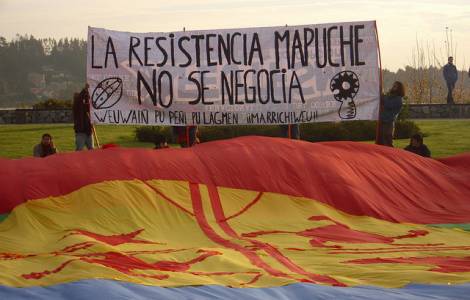
Carol Crisosto Cadiz
Temuco (Agenzia Fides) - The lands where the Mapuche indigenous people live in southern Chile are caught up in a spiral of violence (see Fides 11/08/2016; 17/10/2016; 29/12/2016; 25/01/2017). A presidential Commission, created in July 2016, is setting out to stop with 50 proposals, such as the constitutional recognition of indigenous people and their representation in parliament, in a first shift in the government´s treatment of native peoples. The conflict is in particular serious in La Araucanía region, home to most of the country’s Mapuche people, which includes half of the one million indigenous people in the South American country, inhabited by nearly 18 million people.
Among the proposals of the Commission are the creation of a national registry of victims of violence and compensation for them, support for the economic development of the Mapuche people and solutions to return native land to the Mapuche people, in land disputes.
The package of proposed measures comes in the wake of a dozen arson attacks early this year in rural areas of La Araucanía against logging company trucks and storehouses by unidentified perpetrators, who in some cases left pamphlets with demands by the Mapuche movement.
"It is not an absence of the rule of law, it is a lack of respect and infringement of the human rights of these people. It is the government that undermines their rights", said Father Bresciani, a Jesuit missionary who lives in Tirúa village, the area of conflict. "Here everything works fine, people live normally, they plant, they harvest, they run their errands, they work", says the Jesuit. "The people who talk about an absence of the rule of law have never lived here. We are not at war". Mgr. Héctor Vargas, Bishop of Temuco, the capital of La Araucanía, said that "it is a “wounded and fragmented region" that is facing "a gradual intensification of its problems". The Bishop has called for an end to violence "before hatred puts an end to us… If we want to disarm our hands, we have to first disarm our hearts". (AP) (Agenzia Fides 30/01/2017)